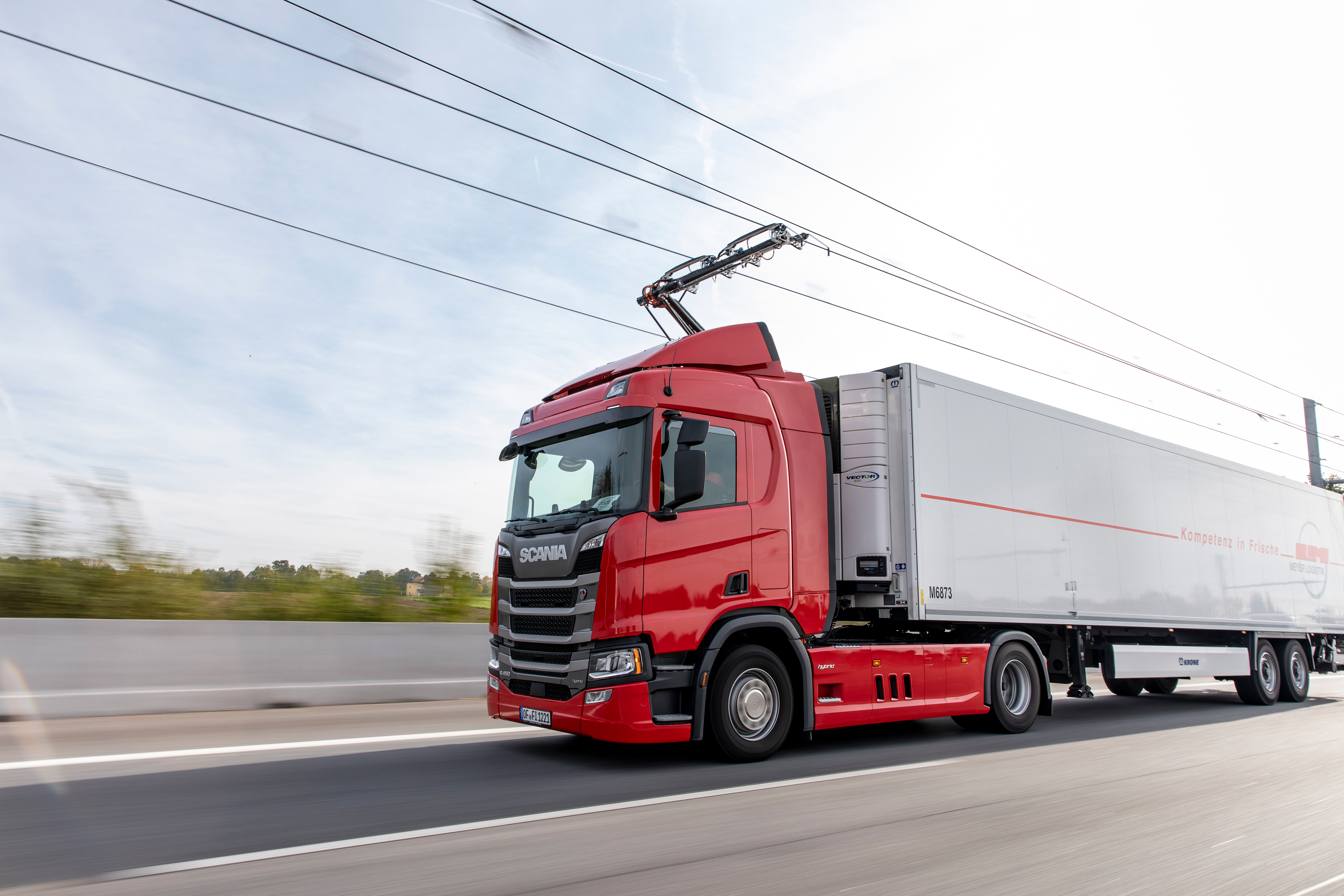
A consortium has received funding from the UK Department for Transport to allow long range trucks to use electric highway technology from Siemens Mobility.
The eHighways allow specially-adapted trucks to attach to overhead wires and run using electricity, similar to rail and trolley-bus systems. The vehicles come equipped with a battery that charges while they are in motion so they can detach to both overtake vehicles and reach their final destination with zero emissions.
A fully-operational electric road system across the UK is expected to create tens of thousands of jobs, with around 200,000 new electric trucks needing to be built over a 10 to 15 year period.
Research by the consortium has found that initial investments into new vehicles by operators could be recouped within 18 months, due to lower energy costs, and the electrification infrastructure would pay back investors in 15 years.
Siemens Mobility CEO William Wilson says: “Investing in proven technologies like eHighways can help us go further and faster to decarbonise the UK’s transport network, and support jobs and growth to level up the country.”
The group hopes the nine-month study will see the UK's major roads served by overhead lines by the 2030s.
It will electrify at least 19 miles of the M180 motorway, which links Immingham Port with the logistics hubs of Doncaster and its airport.
Other partners involved in this project include Scania, Costain, The Centre for Sustainable Road Freight (Cambridge University and Heriot-Watt University), Arup, Milne Research, SPL Powerlines, CI Planning, Box Energi and Possible.
James Armstrong, managing director for Scania Great Britain, says: “We have been working with our partners to develop and mature the eHighway technologies, and have demonstrated that they are not only viable but attractive, cost-effective alternatives to fossil fuel-based vehicles for our customers.”
Siemens, Scania and SPL have previously trialled smaller electric road systems in Germany and Sweden. The partners will take lessons learned from Europe, and provide technical, economic and environmental recommendations for installing a system with a bigger demonstration fleet.
Professor David Cebon, director at the Centre for Sustainable Road Freight (Cambridge University and Heriot-Watt University), says: “Our previous research says that overhead catenary power will provide the lowest cost, lowest carbon, and most rapidly deployable solution to decarbonise long-haul road freight in the UK. This project will test the concept at the next level of detail. Moreover, the technologies this consortium is working on could be deployed in most countries once demonstrated, supporting the global move towards greener logistics.”









